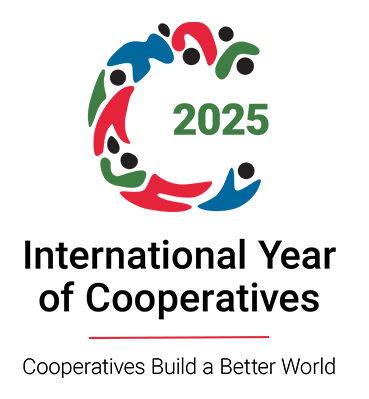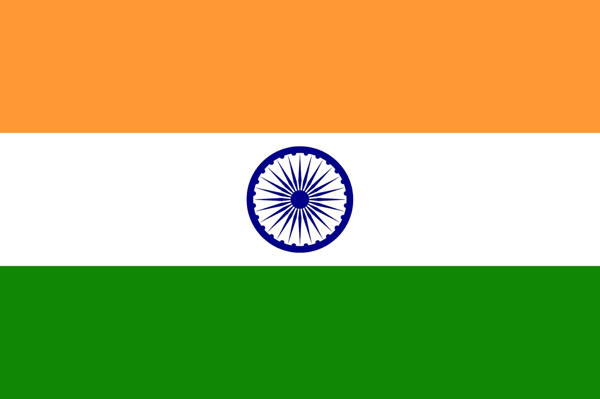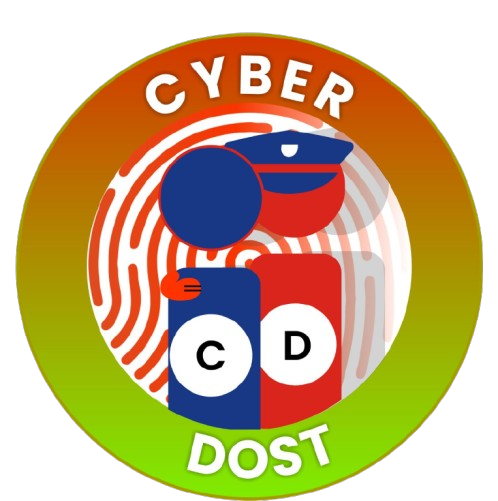Background:
"Lokayukta of Delhi" does not strike a familiar bell in the mind of Delhites despite the institution being in existence for over a decade. Ideally, it should have been the most sought after institution providing relief and succour to the "common man" or "little man", with a grievance or victim of administrative excess due to corruption or maladministration.
We at the Lokayukta are determined to change this situation and make the institution an effective, vibrant and useful one in pursuit of the quest for purity and excellence in administration and governance.
The origin of Lokayukta can be traced to the Ombudsmanic institutions in Scandinavian countries for redressal of citizen's grievances. Growing menace of corruption in India and the need to have responsive administration to the grievances of the citizens, resulted in the Administrative Reforms Commission, (1966-70) recommending the creation of Lokpal at the Centre and Lokayukta in the States. Thus, Lokpal and Lokayukta were enacted.
Scheme of the Statute:
The Delhi Lokayukta and Upalokayukta Act, 1995 was enacted in the year 1996. Rules therefor notified in the year 1998. Lokayukta and Uplokayukta are to inquire into allegations of corruption, misuse of authority and wrong doings of Public Functionaries. These include the Chief Minister, Ministers, MLAs, Member of Municipal Corporation of Delhi, Chairman, Vice Chairman, Managing Director and a member of Board of Directors of Government companies, Corporations, Commissions, Cooperative Societies etc. It excludes from its ambit civil servants/bureaucrats, judiciary, police and the Delhi Development Authority etc.
Lokayukta is created as a statutory authority with a fixed tenure to enable it to discharge its functions independently and impartially. Lokayukta is appointed by the Lt. Governor with prior approval of President of India, after consultation with the Chief Justice of the High Court and the Leader of the Opposition, from among serving or retired Senior Judges of High Court with seven years of experience or a Chief Justice. It is intended to be an-apolitical appointment of a high judicial functionary, so as to instill confidence and faith among all.
Nature of Inquiry:
The Lokayukta and Upalokayukta are to deal with matters of corruption, acts of injustice, nepotism, favoritism, maladministration and non-observance of accepted norms of integrity and conduct by high public functionaries. It is desirable that the inquiry into allegations & complaints is expeditiously conducted. The Administrative Reforms Commission had recommended that the investigation and inquiry proceedings should be conducted in private and be informal in nature to ensure free and thorough inquiry into administrative actions and conduct of public functionaries, it is necessary that the inquiry is neither prolonged nor digressed by the matter getting enmeshed or embroiled in the quagmire of legal technicalities. The Commission, therefore had recommended that the proceedings should not be subject to judicial interference and the Lokayukta should have the maximum latitude and power in obtaining and gathering relevant information. The powers of the Lokayukta have been liberally construed by the Courts since the legislation is for eradication of evil of corruption mal-administration
A citizen normally does not have access to what caused injustice or knowledge of the circumstances resulting in the decision by administration. It is not possible for a citizen to describe what has taken place behind the closed doors or what is recorded in confidential files. He/she can simply complain of the end result. It is for the Lokayukta, wherever corruption, maladministration, injustice, nepotism, departure from accepted norms are indicated or suspected to ascertain the complete facts and circumstances
The rationale for a thorough inquiry by the Lokayukta without interference has been aptly brought out by Judge Milvain of Alberta Supreme Court in Re Alerta Ombudsman Act (1970) 10.Dec LR (3rd) 47.
It must be remembered that the Ombudsman is also a fallible human being and not necessarily right. However, he can bring the lamp of scrutiny to dark places even over the resistance of those who would draw the blinds. If his scrutiny and observations are well founded, corrective measures can be taken in due democratic process, if not, no harm can be done in looking at that which is good.
Subject Matter of Inquiry:
The expanding metropolis of Delhi is witnessing massive development with numerous projects being undertaken. Re-structuring and revamping of public transport system, building of roads, flyovers, bridges & houses is taking place to meet the ever growing influx of population. Setting up of industries, technology parks, educational institutes, medical institutes, hospitals and other development scheme entail substantial investment from the State.
In the above projects and development schemes, Public Functionaries especially the political executives have a pivotal role both in policy making and implementation. Award of contracts, leasing and grant of licences and permits for various projects and schemes etc. are a sequel to it. Citizens may have grievances against Public Functionaries on being deprived of a contract/lease or licence or other benefit claimed or expected. Public at large has legitimate expectation that not only sustainable and viable policies are framed but also such policies are implemented honestly in an efficient manner, without loss to the exchequer or undue hardship to any person or class of persons. The role of Public Functionaries may be allegedly suspect or questionable in mushrooming of illegal industries, patronage in award of contracts, unauthorized constructions, encroachments on public property, pilferage in implementation of schemes, recommendations for illegal water & electricity connections, fake ration cards, licences or permits for oil depots, interference in employment, transfers and many others besides inaction on representations made to public functionaries. The above can lead to complaints of corruption, misuse of authority, nepotism, acquisition or possession of assets disproportionate to known sources of income etc. These and similar others may be referred to as conventional or staple jurisdiction of the Lokayukta. Additionally, there may be grievances arising out of mal administration or non pursuit of best practices in governance and administration which would fall within the ambit of activities or procedures likely to breed corruption. Non observance of the norms of integrity and conduct expected from the class to which the Public Functionaries belongs is also actionable before the Lokayukta.
The Lokayukta may exercise jurisdiction to inquire either on receiving complaints or credible information or may suo moto inquire into the cases which fall within his jurisdiction.
However, corruption in conventional form is just one of the facets of mal- administration, which has unlimited horizons. The Lokayukta has been conferred an extremely significant & constructive jurisdiction under Section 16 of the Act i.e. of making suggestions for improvements in practice and procedures, wherever he feels that the said practice or procedure affords an opportunity or may breed or lead to corruption or mal-administration.
The above would cover almost every facet of governance and administration, concerning public functionaries.
The proceedings before the Lokayukta are intended to be simple, informal and expeditious. Civil procedure code is not made applicable to the inquiry proceedings before the Lokayukta. The Lokayukta is given freedom to devise and follow its own procedure in each case of inquiry as long as the same conforms to the principles of natural justice. However, with a view to empower the Lokayukta to secure the presence of persons and production of records felt necessary for the purposes of inquiry, the provisions of Criminal Procedure Code & Evidence Act enabling the summoning of persons and production of records have been made applicable. Complainant/informant can himself/herself present or argue the case before the Lokayukta. In an appropriate cases, the Lokayukta, in its discretion, can engage services of any Investigating officer, Agency or person to obtain assistance in collection of facts or evidence.
Findings and Recommendations:
The jurisdiction to be exercised by the Lokayukta is recommendatory in nature. The result of the inquiry and findings are to be reported to the Competent Authority of the Public Functionary, whose conduct is complained against or is a subject matter of inquiry. The Competent Authority is required to intimate the action taken or proposed to be taken within 3 months on the report. In case the Lokayukta is satisfied with the proposed action, the case is closed, if not, a special report can be submitted to the Lt. Governor. The special report, if any, is placed before the House i.e. the Legislative Assembly for consideration. Additionally, an Annual Report regarding functioning of the Lokayukta during the year is placed before Legislature.
Role of Government:
Government is expected to provide its support and helping hand to the Lokayukta in its functioning. Ideally, it should distinguish and distance itself from the public functionaries whose conduct is complained against or is under inquiry. The Lokayukta on his part has an obligation to ensure that frivolous and motivated actions are nipped in bud and the process is not misused.
A Govt. committed to the welfare and well being of the people has also to demonstrate transparency in its functioning. Transparency & openness in governance and administration is now accepted as essential for ensuring probity therein. The conventional mind set nurturing apprehensions and difficulties in transparent functioning, emanates from a short term view of the issue. Transparency and openness in the functioning of Govt. will only reaffirm the faith of the people in the purity of its functioning.
Vision for Future- Increasing Awareness and Motivating Citizens:
It appears that a single major factor responsible for under utilization of the institution of Lokayukta is the lack of awareness and knowledge about its existence, ambit of its functions and operations and its utility.
To increase public awareness and knowledge about the existence and functioning of institute of Lokayukta and to make it effective and useful to the public at large, it is proposed to launch programmes for dissemination of information and awareness, so that members of the public can avail of the facilities offered by the institution.
It is also proposed to hold seminars and conferences to spread the message regarding the existence and utility of the institution and the significant role it can play in polity and public life. Towards this end, it is proposed to organize a symposium on the broad subject of Administrative Justice for Citizens wherein different forums of the Government catering to redressal of citizens grievances would be invited to participate along with other stakeholders, so as to have input of different perspectives useful for future growth.
Another major factor for under utilization is the sense of skepticism regarding the futility of lodging complaints against high public functionaries, stemming out of the general belief that the end result would not be redressal of the grievance or indictment of the deviant public functionary. This would only change with the passage of time and when the usefulness of the institution is experienced.
The success of the institution would also depend on a large measure on the participation and interest of the citizen in day to day administration. It is only when citizens take active part in public affairs that acts of corruption and mal administration can be contained. These are encouraged by in-civism and indifference of public at large. Voltaire said in a different context :-
"Cowardice of the honest people ensures the success of the scoundrels"
Here silence and indifference of citizens can give a field day to the corrupt. Every citizen needs to realize that sane voice of a single individual can make a difference in society.
Way Forward :
It needs to be recognized that while on the one hand frivolous and vexatious complaints deserve to be put down with a heavy hand, yet genuine Whistle Blowers/citizen need protection and encouragement. Once credible information is given by the whistle blower/citizen in respect of a wrong doing by a public functionary, it is for the Lokayukta to enquire, investigate and proceed further. The Lokayukta needs to ensure that honest whistle blower / citizen, who has mustered courage to disclose credible information is not subjected to any harassment or cumbersome procedure of filing and prosecuting the complaint. Such matters could be taken up in suo moto jurisdiction after due scrutiny. The above approach over a period of time would instill confidence in the efficacy of the institution. A necessary concomitant for this would also be due consideration and implementation of the recommendations of Lokayukta.


 दिल्ली लोकायुक्त
दिल्ली लोकायुक्त 


